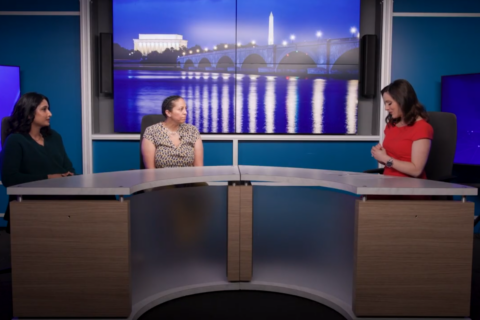Gyms are among businesses that will be opening fully in D.C. on May 21 and when they do, a Maryland expert on hearing damage wants gym managers to reflect upon how loud to play music.
Working up a sweat in spinning class doesn’t have to be dangerous.
“Our study shows that lowering music level not only does not decrease motivation, it actually pleases more of the people who go to gyms and brings the sound down to levels that are safe,” Dr. Ronna Hertzano of the University of Maryland School of Medicine said.
Hertzano is an associate professor of Otolaryngology-Head and Neck Surgery. She said it’s been shown previously that beats in music are more of a motivator during exercise than intensity of volume.
“Many studies have now shown that the music levels in spinning classes and high intensity interval training classes are damaging to the point that they put their participants at risk of early age-related hearing loss,” she said.
How loud is too loud? There are smartphone apps that evaluate and report sound intensity.
“If the sound level in your gym is more than 85 dB (decibels) during a class, then that sound is too loud,” Hertzano said. “And most gyms, particularly for spinning classes, the sound levels are at 90, 95 and even higher, where every 3db increase is a doubling of the power.”
To help prevent hearing damage to gym visitors and instructors, Hertzano recommends:
- Install sound level meters with visible displays.
- Put boxes of ear plugs in prominent places.
- Education: People who attend spinning classes are not aware, for example, that coming out of a class and having ringing in their ears is associated with hearing loss.
Hertzano believes the intention of the gyms is good.
“They choose the best workouts and put on the music at a loud intensity so that people will exercise harder and be healthier and more fit. They don’t realize, though, that by increasing the music to this level, they’re actually harming the hearing of people,” Hertzano said.
The Centers for Disease Control and Prevention explains how damage caused by repeated exposures to loud sounds over time can cause hearing loss.
Hertzano hopes that people will begin to respect risks to hearing much like how the potential danger from smoking or sun exposure is more universally recognized.
“It is time for us to realize that noise or sound overexposure is dangerous, as well. And, the biggest challenge is that sound is invisible,” Hertzano said.








